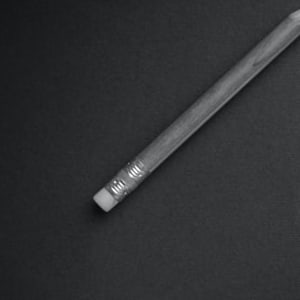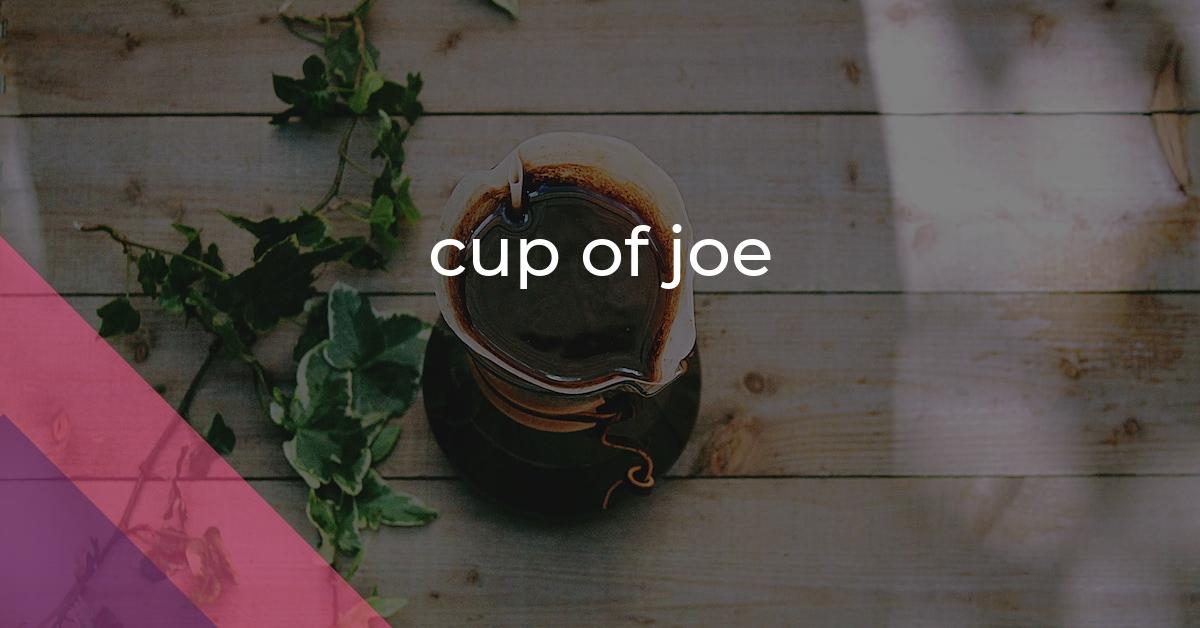cup of joe: Idiom Meaning and Origin
What does ‘cup of joe’ mean?
The idiom cup of joe refers to a mug of coffee, often used casually or informally. The origin of the phrase is uncertain, but it has been commonly used since the early 20th century.

Idiom Explorer
The idiom "watering hole" refers to a place, often a bar or pub, where people gather to socialize and have drinks. It symbolizes a meeting point or social hub where individuals come together to relax and enjoy each other's company.
The idiom "top of the morning" is commonly used to greet someone in the early hours of the day, generally before noon. It conveys the idea of wishing someone a good morning and is often associated with Irish culture.
An idiom widely used to refer to something insignificant or unimportant. It implies that the mentioned object or amount is of little value or significance.
"Put the plug in the jug" is an idiom that means to stop drinking alcohol or to quit drinking excessively.
The idiom "of choice" is used to describe something that is the preferred or favored option among a range of possibilities.
The idiom "of an" is used to emphasize a particular quality or characteristic of someone or something. It indicates that the quality being mentioned is extremely notable or outstanding.
The idiom "long drink" refers to a refreshing alcoholic beverage that is typically long in size or volume. It is often used to describe a tall glass of mixed drink, such as a highball or a cocktail served over ice.
The idiom "jug ears" refers to someone with large or protruding ears. It is used to describe someone's physical appearance, often in a derogatory or humorous manner.
The idiom "Joe Citizen" refers to an average person, an ordinary individual who represents the typical member of society. It is often used to emphasize the relatability or universality of a situation or concept.
Unexpected Java Jargon
The idiom "cup of joe" is a commonly used phrase in contemporary American English. It refers to a cup of coffee, specifically a serving of the beverage. This idiom has a specific meaning in American culture, widely recognized and understood by native English speakers.
The origin of the idiom "cup of joe" is not entirely clear, but there are several proposed theories. One theory suggests that the phrase originated from the association of the name "Joe" with coffee. During World War I, it is believed that soldiers commonly referred to a serving of coffee as a "cup of Joe" as a way to honor Josephus Daniels, who was the Secretary of the Navy at the time and implemented a ban on alcoholic beverages onboard U.S. Navy ships. Another theory suggests that "joe" was a term used to refer to any common person or average guy, and therefore a "cup of joe" became synonymous with a drink that was enjoyed by the general public.
Regardless of its exact origin, the idiom "cup of joe" has firmly established itself in everyday language and is widely used in various contexts. It is used in casual conversations, literature, advertisements, and a variety of media. Over time, it has become a recognized and widely understood idiom among English speakers.
In terms of its meaning, the idiom "cup of joe" simply refers to a cup of coffee. It is a colloquial and informal way to talk about coffee, often used in a friendly or conversational tone. Like any idiom, its meaning is not dependent on the literal interpretation of each individual word, but rather on the collective meaning assigned to the phrase within the English language. This idiom adds color and vibrancy to the language, allowing for a more nuanced and expressive way of communication.
The idiom "cup of joe" is a well-known expression in American English that refers to a cup of coffee. Its exact origin may be uncertain, but its usage and meaning have become an integral part of the English language. Whether it originated as a tribute to Secretary Josephus Daniels or as a way to refer to an average person, the idiom has become deeply ingrained in popular culture. It serves as a reminder of the power of language to create shared meanings and bring people together. While the precise details of its origin may remain elusive, the continued use and understanding of the idiom "cup of joe" provide a window into the cultural and linguistic richness of the English language.
Now let's explore a few idioms that are related to the "cup of joe" idiom.
"cup of tea" is another idiom often used to describe personal preferences or likings. People might say, "That's not my cup of tea" when something is not to their liking or interest. While the idiom "cup of joe" refers to coffee, "cup of tea" is used to express a preference or taste in a particular matter. Both idioms add flavor and character to the English language.
"coffee talk" is another idiom often used in social or conversational contexts. It refers to informal discussions or chats over a cup of coffee. Coffee talk can involve catching up with friends, discussing current events, or simply engaging in casual conversation. It is an engaging and relaxed way to connect with others, sharing thoughts and exchanging ideas over a hot beverage.
"in one's cups" is an idiom that refers to someone who is intoxicated or under the influence of alcohol. The phrase dates back to the early 19th century and originates from the idea of someone drinking to the point where their cup or glass is constantly filled. While "cup of joe" is about enjoying a cup of coffee, "in one's cups" takes a different direction, highlighting the effects of excessive drinking.
These idioms, including "cup of joe," "cup of tea," "coffee talk," and "in one's cups," demonstrate the versatility and richness of the English language. They bring depth and nuance to everyday conversations, making them more engaging and colorful. Whether it's discussing personal preferences, engaging in casual conversation, or exploring the effects of alcohol, these idioms provide an opportunity to connect and communicate in a uniquely expressive way.
So, next time you're enjoying a cup of joe, remember the rich history and culture behind this idiom, as well as the other related idioms that add flavor to the English language. Language is a powerful tool that allows us to connect, understand, and express ourselves, and idioms like these help create a shared experience among English speakers. Cheers to the language and all the idioms that enhance our conversations!
Example usage
Examples of how the idiom "cup of joe" can be used in a sentence:
- I need a cup of joe to wake me up in the morning.
- Can you pick me up a cup of joe on your way to work?
- After a long day, I enjoy sitting down with a hot cup of joe.
More "Beverages" idioms



